
Colonialism is a practice by which a one group of people, social construct or nation state controls, directs, or imposes taxes or tribute on other people or areas, often by establishing colonies, generally for strategic and economic advancement of the colonizing group or construct. There is no clear definition of colonialism; definitions may vary depending on the use and context.

The history of Norfolk Island dates back to the fourteenth or fifteenth century when it was settled by Polynesian seafarers.
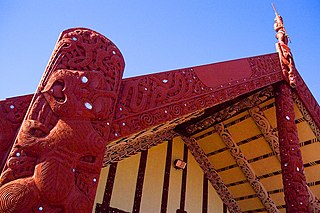
Māori culture is the customs, cultural practices, and beliefs of the indigenous Māori people of New Zealand. It originated from, and is still part of, Eastern Polynesian culture. Māori culture forms a distinctive part of New Zealand culture and, due to a large diaspora and the incorporation of Māori motifs into popular culture, it is found throughout the world. Within Māoridom, and to a lesser extent throughout New Zealand as a whole, the word Māoritanga is often used as an approximate synonym for Māori culture, the Māori-language suffix -tanga being roughly equivalent to the qualitative noun-ending -ness in English. Māoritanga has also been translated as "[a] Māori way of life." The term kaupapa, meaning the guiding beliefs and principles which act as a base or foundation for behaviour, is also widely used to refer to Māori cultural values.
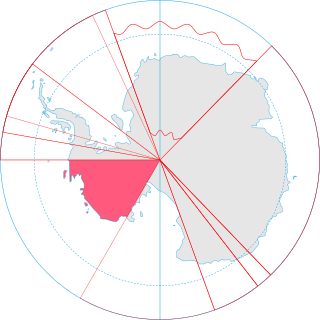
Terra nullius is a Latin expression meaning "nobody's land". It was a principle sometimes used in international law to justify claims that territory may be acquired by a state's occupation of it. There are currently three territories sometimes claimed to be terra nullius: Bir Tawil, four pockets of land near the Danube due to the Croatia–Serbia border dispute, and parts of Antarctica, principally Marie Byrd Land.

The New Zealand Company, chartered in the United Kingdom, was a company that existed in the first half of the 19th century on a business model that was focused on the systematic colonisation of New Zealand. The company was formed to carry out the principles devised by Edward Gibbon Wakefield, who envisaged the creation of a new-model English society in the Southern Hemisphere. Under Wakefield's model, the colony would attract capitalists, who would then have a ready supply of labour: migrant labourers who could not initially afford to be property owners but would have the expectation of one-day buying land with their savings.

Edward Gibbon Wakefield is considered a key figure in the establishment of the colonies of South Australia and New Zealand. He also had significant interests in British North America, being involved in the drafting of Lord Durham's Report and being a member of the Parliament of the Province of Canada for a short time.

Akaroa is a small town on Banks Peninsula in the Canterbury Region of the South Island of New Zealand, situated within a harbour of the same name. The name Akaroa is Kāi Tahu Māori for "Long Harbour", which would be spelled Whangaroa in standard Māori. The area was also named Port Louis-Philippe by French settlers after the reigning French king Louis Philippe I.

Te Urewera National Park was a national park near the east coast of New Zealand's North Island, established as such in 1954 and disestablished in 2014, when it was replaced by a new legal entity and protected area named Te Urewera. The park covered an area of approximately 2,127 km2 and was located in the north of the Hawke's Bay region of the North Island. It was the largest of four national parks in the North Island and the most isolated rainforest in the region.
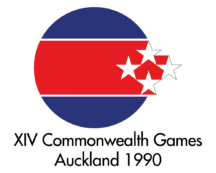
The 1990 Commonwealth Games was held in Auckland, New Zealand from 24 January – 3 February 1990. It was the 14th Commonwealth Games, and part of New Zealand's 1990 sesquicentennial celebrations. Participants competed in ten sports: athletics, aquatics, badminton, boxing, cycling, gymnastics, judo, lawn bowls, shooting and weightlifting. Netball and the Triathlon were demonstration events.

The biodiversity of New Zealand, a large island country located in the south-western Pacific Ocean, is varied and distinctive. The species of New Zealand accumulated over many millions of years as lineages evolved in the local circumstances. New Zealand's pre-human biodiversity exhibited high levels of species endemism, but has experienced episodes of biological turnover. Global extinction approximately 65 Ma resulted in the loss of fauna such as non-avian dinosaurs, pterosaurs and marine reptiles e.g. mosasaurs, elasmosaurs and plesiosaurs. The ancient fauna is not well known, but at least one species of terrestrial mammal existed in New Zealand around 19 Ma. For at least several million years before the arrival of human and commensal species, the islands had no terrestrial mammals except for bats and seals, the main component of the terrestrial fauna being insects and birds. As recently as the 14th century a component has been introduced by humans, including many terrestrial mammals.
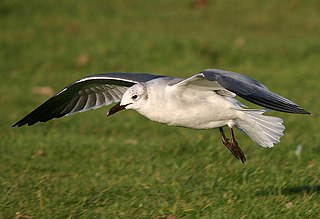
Vagrancy is a phenomenon in biology whereby an individual animal appears well outside its normal range; they are known as vagrants. The term accidental is sometimes also used. There are a number of poorly understood factors which might cause an animal to become a vagrant, including internal causes such as navigatory errors and external causes such as severe weather. Vagrancy events may lead to colonisation and eventually to speciation.

Stream capture, river capture, river piracy or stream piracy is a geomorphological phenomenon occurring when a stream or river drainage system or watershed is diverted from its own bed, and flows instead down the bed of a neighbouring stream. This can happen for several reasons, including:

Various Māori traditions recount how their ancestors set out from their homeland in waka hourua, large twin-hulled ocean-going canoes (waka). Some of these traditions name a homeland called Hawaiki.
An ecological island is a term used in New Zealand, and increasingly in Australia, to refer to an area of land isolated by natural or artificial means from the surrounding land, where a natural micro-habitat exists amidst a larger differing ecosystem. In New Zealand the term is used to refer to one of several types of nationally protected areas.
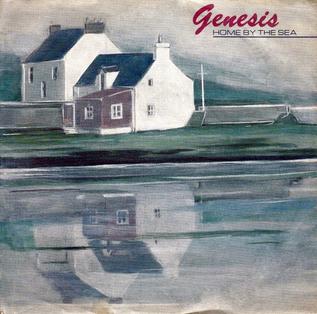
"Home by the Sea" and "Second Home by the Sea" is a suite of two songs by English rock band Genesis. It first appeared on their eponymous album in 1983. The lyrics were written by keyboardist Tony Banks and the music was written by the whole band. Lyrically, the song is about a burglar who breaks into a house only to find it is haunted. The burglar is captured by the ghosts, who force him to listen to their stories for the rest of his life. "Home by the Sea" became a chart hit in New Zealand, peaking at number four in November 1986.
The following lists events that happened during 1838 in New Zealand.
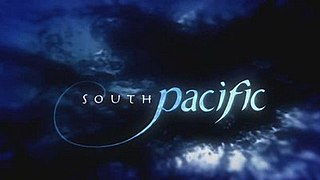
South Pacific is a British nature documentary series from the BBC Natural History Unit, which began airing on BBC Two on 10 May 2009. The six-part series surveys the natural history of the islands of the South Pacific region, including many of the coral atolls and New Zealand. It was filmed entirely in high-definition. South Pacific was co-produced by the Discovery Channel and the series producer was Huw Cordey. It is narrated by Benedict Cumberbatch. Filming took place over 18 months in a variety of remote locations around the Pacific including: Anuta, Banks Islands, French Frigate Shoals, Papua New Guinea, Palmyra, Kingman Reef, Tuvalu, Palau, Caroline Islands, Tuamotus and Tanna Island in Vanuatu.
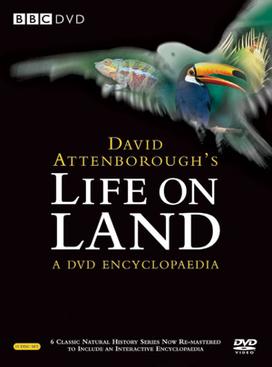
David Attenborough's Life on Land: A DVD Encyclopaedia is a DVD box set of nature documentaries made by the BBC Natural History Unit. It comprises six series spread across 15 discs, all of them written and presented by David Attenborough, and together forming a comprehensive introduction to the major groups of terrestrial lifeforms. The series were filmed between 1987 and 2008, but are presented in the order in which the groups evolved, beginning with invertebrates and culminating with human beings, to tell the continuous story of the development of life on land. With a total running time exceeding 34 hours, it represents an in-depth visual survey of the living world as it exists today, at the beginning of the 21st century.

Feminism in New Zealand is a series of actions and a philosophy to advance rights for women in New Zealand. This can be seen to have taken place through parliament and legislation, and also by actions and role modelling by significant women and groups of people throughout New Zealand's history. The women's suffrage movement in New Zealand succeeded in 1893 when New Zealand became the first nation where all women were awarded the right to vote. New Zealand was also the first country in the world in which the five highest offices of power were held by women, which occurred between March 2005 and August 2006, with Queen Elizabeth II, Governor-General Silvia Cartwright, Prime Minister Helen Clark, Speaker of the New Zealand House of Representatives Margaret Wilson and Chief Justice Sian Elias.

Te Matuku Marine Reserve is a marine reserve administered by the New Zealand Department of Conservation. It includes Te Matuku Bay, one of the largest and least disturbed estuaries on Waiheke Island, as well as a surrounding area of sea. It covers an area of 690 ha and was established in 2003.


















